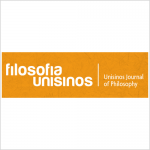Wearable Robots in rehabilitative therapy: A step towards transhumanism or an ecological support?
Vol 17, No 2 (2016) • Filosofia Unisinos - Unisinos Journal of Philosophy
Autor: Luca Valera
Resumo:
In the present paper we want to argue that Wearable Robots (i.e., technological devices used to restore the possibility of walking and re-establishing “normal” human life) should not necessarily be anthropomorphic, in order to respect human autonomy, freedom, and nature. Moreover, we argue that this non-anthropomorphism does not necessarily lead to transhumanism. To adequately discuss this topic, we are called to consider various aspects embedded in the question: the difference between restoring and enhancing, i.e., the difference between considering human nature as normative, or will (or wish) as the main criterion of choice; the difference between exceeding the limits of human nature (i.e., human enhancement) and restoring human functions; and, finally, the nature of the function itself. We will introduce a “weak” notion of autonomy and freedom, dealing with rehabilitation and motility, in order to assess the use of Wearable Robots in rehabilitative medicine. Hence we will argue that the less constraints that patients have, the freer they are. All these aspects also imply an anthropological and ecological view, since they have to do with the relationship of the human being with its environment.
ISSN: ISSN: 1984-8234
Texto Completo: http://revistas.unisinos.br/index.php/filosofia/article/view/fsu.2016.172.03
Palavras-Chave: human ecology,Wearable Robots,Transhumanism,

Filosofia Unisinos - Unisinos Journal of Philosophy
The journal Filosofia Unisinos - Unisinos Journal of Philosophy is published once every four months by Universidade do Vale do Rio dos Sinos.
Articles must be original, unpublished, and not under consideration for publication anywhere else and can be written in Portuguese, English or Spanish
Filosofia Unisinos - Unisinos Journal of Philosophy prints articles, translations and critical book reviews. It also reprints papers that are considered fundamental to the area when authorized written permission is given by the original publisher.
